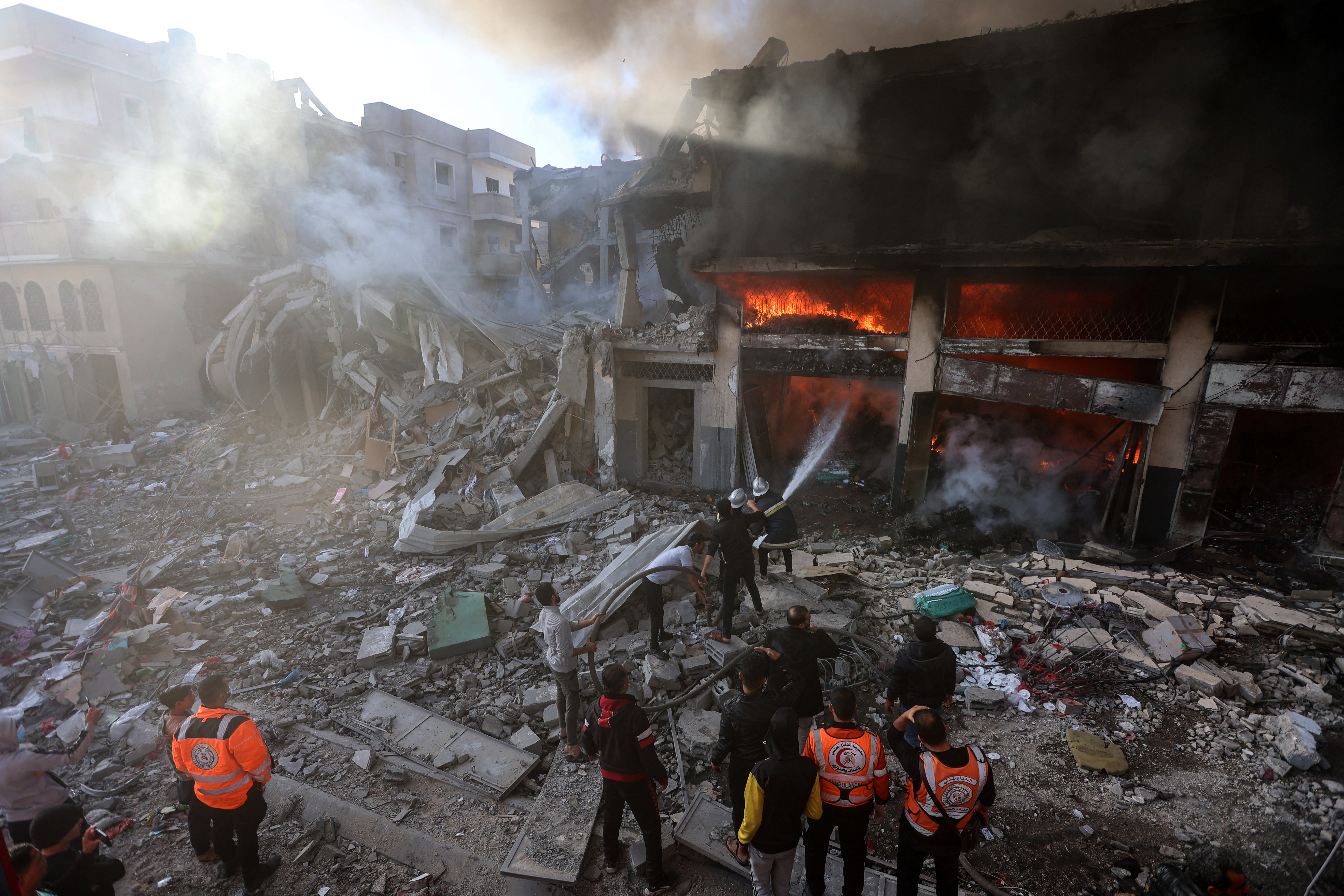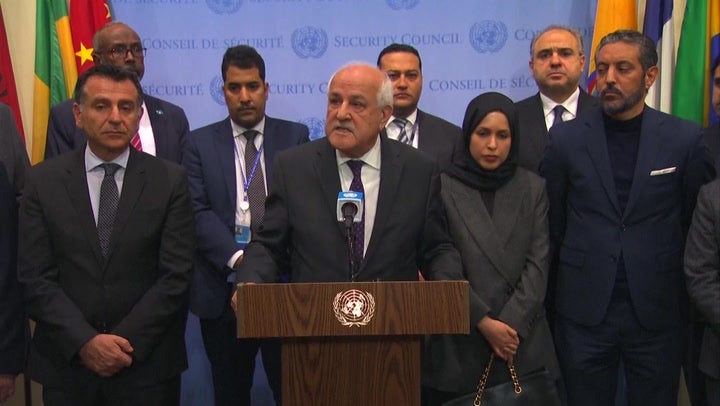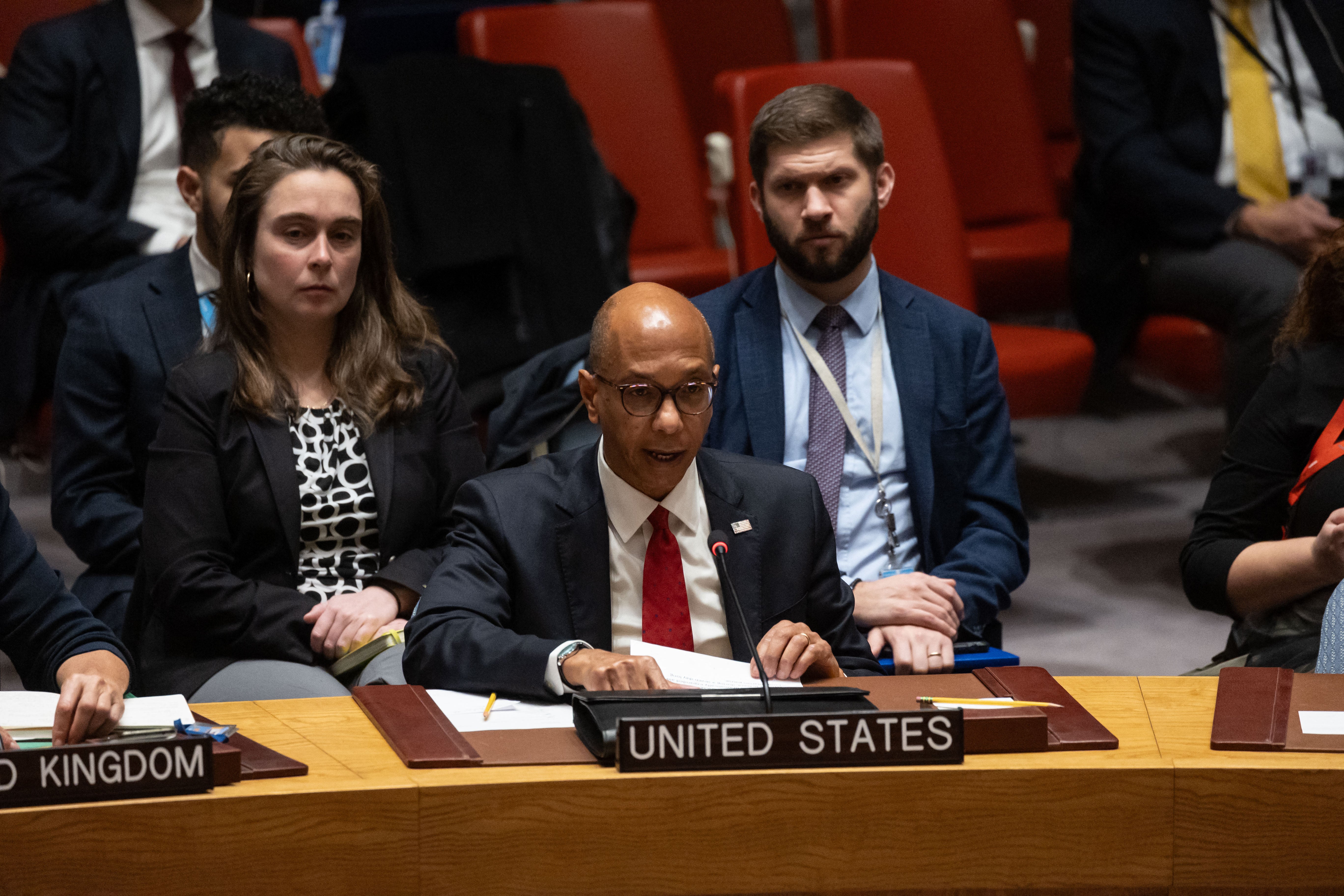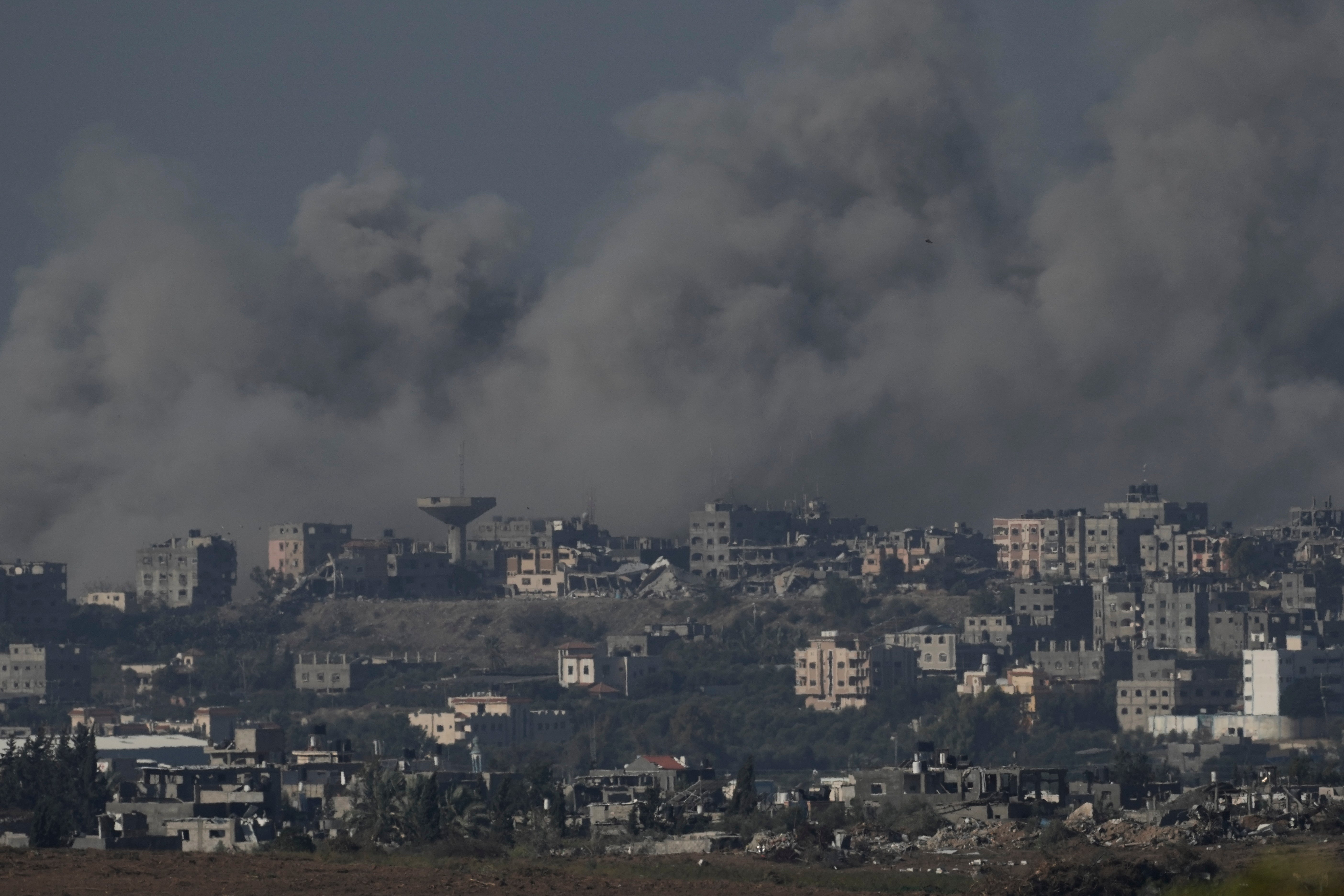US accused of being complicit in Gaza ‘war crimes’ after vetoing UN resolution on ceasefire
Human rights groups condemn Washington’s move as being ‘against humanity’
Your support helps us to tell the story
From reproductive rights to climate change to Big Tech, The Independent is on the ground when the story is developing. Whether it's investigating the financials of Elon Musk's pro-Trump PAC or producing our latest documentary, 'The A Word', which shines a light on the American women fighting for reproductive rights, we know how important it is to parse out the facts from the messaging.
At such a critical moment in US history, we need reporters on the ground. Your donation allows us to keep sending journalists to speak to both sides of the story.
The Independent is trusted by Americans across the entire political spectrum. And unlike many other quality news outlets, we choose not to lock Americans out of our reporting and analysis with paywalls. We believe quality journalism should be available to everyone, paid for by those who can afford it.
Your support makes all the difference.The US has been accused of being complicit in alleged war crimes in Gaza after it vetoed a UN Security Council resolution calling for an immediate ceasefire in the Israel-Hamas war.
Mahmoud Abbas, leader of the Palestinian Authority in the occupied West Bank, said on Saturday that the US was “responsible for the bloodshed of children” and that its position on a ceasefire is “aggressive and immoral, a flagrant violation of all humanitarian principles and values”. Ezzat El-Reshiq, a member of Hamas’ political bureau, condemned the US veto as “inhumane”.
The UN vote, which took place on Friday night, saw 13 of 15 Security Council members vote in favour of the draft resolution calling for a ceasefire that was brought forward by the United Arab Emirates. The UK abstained.
The US’s decision to veto the resolution has attracted a chorus of criticism from capitals across the Middle East and around the world.

Turkish president Recep Tayyip Erdogan said: “Israel has carried out atrocities and massacres that will shame the whole of humanity. All the values relating to humanity are being murdered in Gaza.” Referring to the US veto, Mr Erdogan said a fairer world was possible, “but not with America, because the USA stands with Israel”.
Turkish foreign minister Hakan Fidan, in an interview with Turkey’s state-run news agency Anadolu and broadcasterTRT, said: “The American political system is now helpless on issues related to Israel. Therefore, Israel acts recklessly on this issue and continues its oppression.”
Ahead of the UN vote, Mr Fidan and a delegation of foreign ministers from Arab nations travelled to Washington DC to push the US government to drop its objections to an immediate ceasefire in Gaza.
Jordanian foreign minister Ayman Safadi said on Friday, ahead of a meeting with secretary of state Antony Blinken, that Israel’s bombardment and siege of Gaza is a war crime and one that is destabilising the region.
The US veto also attracted criticism from a range of human rights groups. Amnesty International said it showed a “harsh disregard for the suffering of civilians”, whilst Doctors Without Borders – also known as Medecins san Frontieres – said it was a “vote against humanity”.

Justifying its position, the deputy US ambassador to the UN Robert Wood told the Security Council that a ceasefire “will only plant the seeds for the next war”.
The US has instead said it supports “humanitarian pauses” – such as last week’s seven-day truce which saw more than 100 hostages returned to Israel and 240 Palestinian detainees, most held without charge, freed.
As the vote on the resolution took place, Israeli warplanes continued to pound Gaza with airstrikes, which wrought destruction throughout the night and into Saturday. Brutal, house-to-house fighting was reported in the southern city of Khan Younis on Saturday, as Israeli ground operations pressed on. Israel ordered residents out of the centre of of Khan Younis on Saturday.
The death toll in Hamas-run Gaza now stands at well over 17,000, according to the health ministry.

During the vote, UN secretary general Antonio Guterres spoke of a “serious risk to the maintenance of international peace and security” in the Gaza conflict, pointing to the spillover of hostilities in “the occupied West Bank, Lebanon, Syria, Iraq and Yemen”.
Since the war began, Israel has fought on multiple fronts, engaging in skirmishes with Iran-backed Hezbollah on its northern border with Lebanon and facing missiles fired towards its southern region by Iran-backed Houthi rebels in Yemen. Israel has also conducted a number of airstrikes into Syria.
In Iraq, other Iran-backed rebels have fired upon US interests in retaliation for their support of Israel. On Friday, the US embassy was targeted by a rocket, which caused minor material damage but no casualties, US and Iraqi officials said.
Shortly after the UN vote, Iran warned of the possibility of an “uncontrollable explosion in the situation of the region”.

Despite their resistance to a ceasefire, the US has placed pressure on Israel to do more to limit civilian casualties, with Mr Blinken saying that a “gap” remains between Israel’s declared intentions to protect civilians and the mounting death toll on the ground. “As we stand here almost a week into this campaign into the south… it remains imperative that Israel put a premium on civilian protection,” he said.
In response to calls for a ceasefire, Israeli defence minister Yoav Gallant argued it would amount to a victory for Hamas.
“A ceasefire is handing a prize to Hamas, dismissing the hostages held in Gaza, and signalling terror groups everywhere,” he said. “Stand with Israel in our mission – we are fighting for our future, and we are fighting for the free world.”

Join our commenting forum
Join thought-provoking conversations, follow other Independent readers and see their replies
Comments